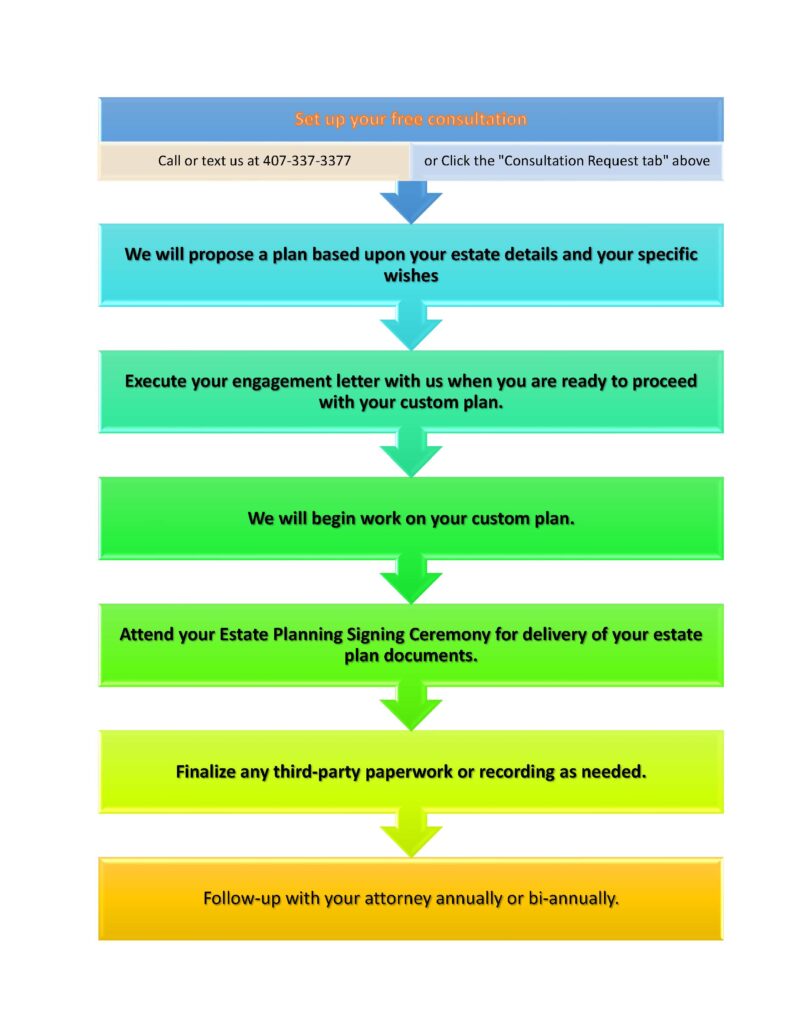Why should I use your estate planning services, and what benefits can I expect?
The importance of Estate Planning
Estate planning is an essential aspect of financial and life planning. Planning for the inevitable can be a difficult task, but it’s necessary to ensure that your hard-earned assets and legacy are protected and distributed according to your wishes. Estate planning is not just for the wealthy; it’s for everyone who wants to ensure that their family, loved ones, and beneficiaries are well taken care of after their passing.
Not planning your estate could lead to unwanted tax consequences, liabilities, and the state deciding for you. This is why it’s crucial to work with an experienced and knowledgeable estate planning attorney to create a comprehensive plan that’s custom to your financial scenario, physical location, family situation, and specific wishes.
A well-thought-out estate plan provides the peace of mind that comes with knowing that your affairs are in order and that your legacy will be preserved. It can also ensure that your loved ones are not left with the burden of managing your assets and debts in the event of your death.
At our law firm, we understand that estate planning can be a daunting task. Our compassionate and knowledgeable attorneys are here to guide you through the process and help you create a comprehensive plan that reflects your unique wishes and needs. With our legal expertise, we can help you navigate complex legal requirements, minimize tax liabilities, and provide peace of mind for you and your loved ones.
Don’t wait until it’s too late. Schedule a consultation with our experienced estate planning attorneys today and take the first step in securing your legacy. We’ll help you create a comprehensive estate plan that will protect your assets, minimize tax liabilities, and ensure that your loved ones are taken care of when you’re no longer here. Let us help you plan for the inevitable and take control of your legacy today.
If you are familiar with estate planning and are looking to set up a free consultation or have questions about the process see our simplified planning process flow chart below.
Estate Planning Q & A
What Documents might be part of my estate plan?
When it comes to estate planning, there are several documents that are commonly included in an estate plan. The specific documents included in your plan may vary depending on the complexity of your estate, your individual goals, and your unique circumstances. However, the following list provides an overview of some of the most commonly used documents in an estate plan:
- Last Will and Testament: A legal document that outlines how you want your property to be distributed after your death.
- Trust: A legal arrangement in which a trustee holds and manages assets for the benefit of a beneficiary.
- Durable Power of Attorney: A legal document that designates someone to make financial or legal decisions on your behalf if you become incapacitated.
- Healthcare Directive/Living Will: A legal document that allows you to specify your wishes for medical treatment if you become unable to make those decisions for yourself.
- HIPAA Authorization: A legal document that authorizes certain individuals to access your medical information.
- Beneficiary Designations: Designating beneficiaries for your life insurance policies, retirement accounts, and other assets.
- Letter of Instruction: A document that outlines your preferences and instructions for your funeral or other end-of-life arrangements.
- Business Succession Plan: A plan for transferring ownership and control of a business in the event of the owner’s death or incapacity.
- Property Ownership Documents: Documents that show proof of ownership for real estate, vehicles, and other valuable assets.
It is important to consult with an estate planning attorney to determine which documents are appropriate for your individual situation and to ensure that your estate plan is legally valid and up-to-date.
What is the Estate Planning process with Denise L. Adkins, P.A.
This is a simplified version but the basic process that your plan will go through from start to finish.

I have a Will but it was drafted in another state, is that ok?
As a Florida resident, if you have a Will that was drafted in another state, it may not meet the requirements set forth in Florida law. In order to be valid and enforceable, your Will must meet the specific legal formalities set forth in Florida statutes.
While some provisions of your out-of-state Will may still be valid, there is a risk that other provisions may not be recognized under Florida law. This can result in confusion, delays, and potential legal challenges during the probate process. To avoid these issues, it is recommended that you have your Will reviewed by an experienced estate planning attorney who is familiar with Florida law.
An attorney can review your Will and make any necessary updates or revisions to ensure that it is legally valid and enforceable in Florida. This can help ensure that your wishes are carried out and that your loved ones are properly cared for after your passing. So if you have a Will drafted in another state, it’s important to consult with an attorney to make sure that your estate plan meets the requirements of Florida law.
Why might I need a trust?
There are several reasons why you might consider creating a trust as part of your estate plan under Florida Trust and Probate Code and Statutes. One reason is that a trust allows you to avoid the probate process, which can be time-consuming, expensive, and public. By placing your assets in a trust, you can ensure that they are distributed according to your wishes without the need for court intervention.
Another reason to consider a trust is that it can provide you with more control over how your assets are managed and distributed. With a trust, you can specify how and when your beneficiaries will receive their inheritance, and you can also set conditions for distributions based on certain events, such as the attainment of a certain age or the completion of a specific milestone.
Additionally, a trust can help you protect your assets from creditors and potential legal challenges. With certain types of trusts, such as an irrevocable trust, you can transfer ownership of your assets to the trust, which can provide protection against creditors and potential legal challenges.
Overall, a trust can be a powerful tool for estate planning in Florida, offering benefits such as probate avoidance, greater control over asset distribution, and asset protection. However, it’s important to work with an experienced estate planning attorney to determine if a trust is the right option for your specific needs and goals.
Why is a Power of Attorney (“POA”) an important document?
A power of attorney is an important legal document because it allows you to appoint someone to act on your behalf if you become incapacitated or otherwise unable to make decisions for yourself. This can be crucial in situations where you are unable to make medical or financial decisions, such as due to a serious illness or injury.
In particular, a durable power of attorney is an important document because it remains in effect even if you become incapacitated. Without durability language, a power of attorney will typically expire if you become incapacitated, which can leave you and your loved ones in a difficult situation.
With a durable power of attorney, you can ensure that your wishes are carried out even if you are unable to make decisions for yourself. This can provide peace of mind for both you and your loved ones, knowing that there is someone who can step in and handle important matters on your behalf.
Overall, a power of attorney is an important document that can help ensure that your wishes are carried out even in the event of incapacity. And with durability language, you can further strengthen the power of attorney and ensure that it remains effective when you need it most.
Is a Healthcare Power of Attorney really important ?
Yes, a Healthcare Power of Attorney is an important legal document that can be crucial in ensuring that your healthcare wishes are carried out if you are unable to make decisions for yourself. This document allows you to appoint someone to make healthcare decisions on your behalf if you become incapacitated or otherwise unable to make decisions for yourself.
Without a Healthcare Power of Attorney, your loved ones may be left in a difficult situation if you become incapacitated and are unable to communicate your healthcare wishes. They may not know what medical treatments or interventions you would want, which can lead to confusion, disagreements, and even legal disputes.
By having a Healthcare Power of Attorney in place, you can provide clear instructions about your healthcare wishes, and ensure that someone you trust is appointed to make decisions on your behalf. This can provide peace of mind for both you and your loved ones, knowing that your healthcare wishes will be respected and carried out even in the event of incapacity.
Overall, a Healthcare Power of Attorney is an important document to consider as part of your overall estate plan, and can help ensure that your healthcare wishes are respected and followed if you are unable to make decisions for yourself.
What is Probate?
Probate is the legal process that occurs after someone passes away, during which their assets are distributed to their heirs or beneficiaries according to their will or, if there is no will, according to state law. The probate process involves proving the validity of the will (if there is one), identifying and valuing the deceased person’s assets, paying any outstanding debts or taxes, and distributing the remaining assets to the beneficiaries.
During the probate process, the court supervises the administration of the estate, and ensures that the assets are distributed according to the deceased person’s wishes or state law. Probate can be a complex and time-consuming process, and it is often advisable to work with an experienced attorney who can help guide you through the process and ensure that your loved one’s wishes are carried out as smoothly and efficiently as possible.

